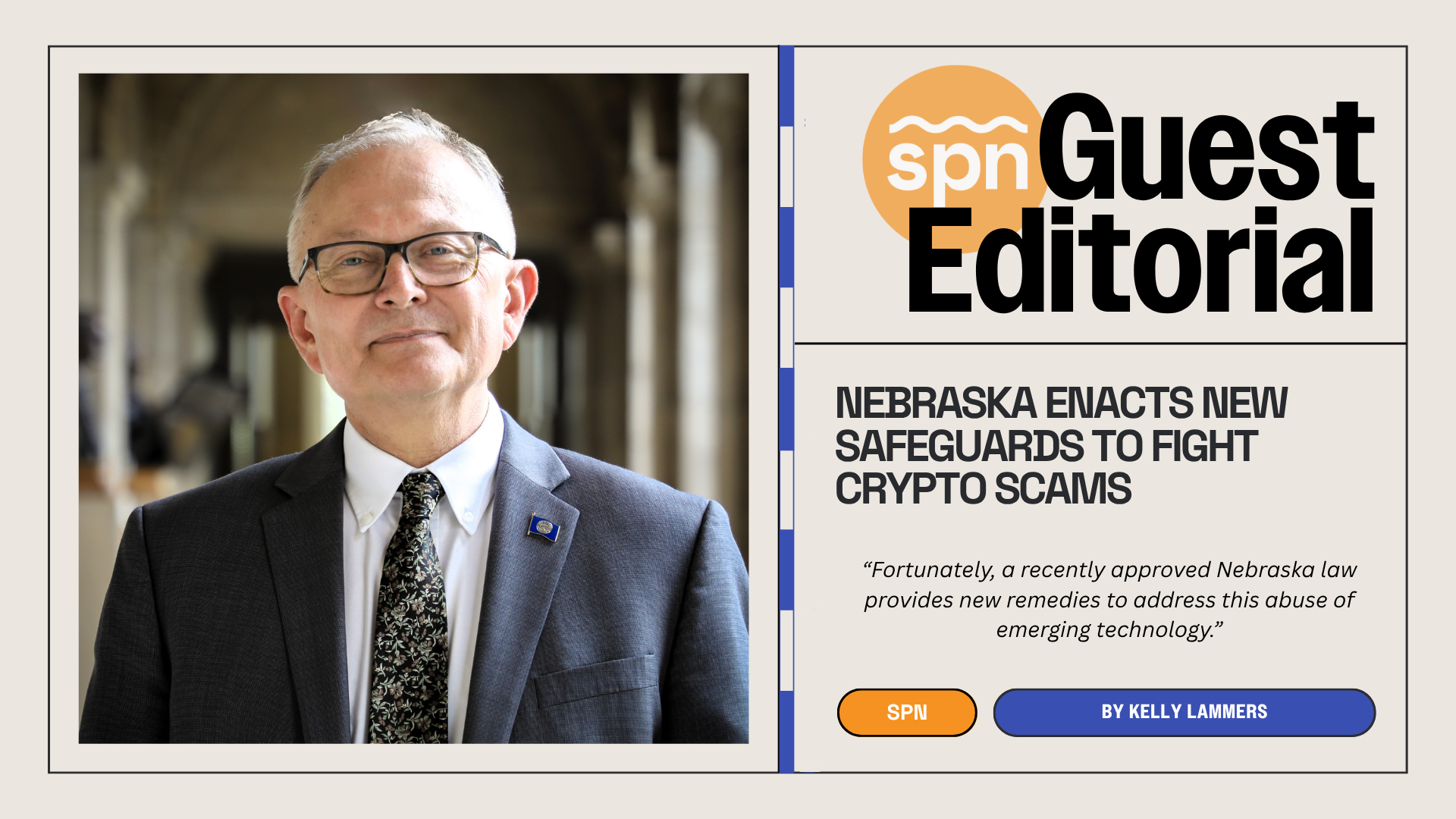The following is a guest editorial from Kelly Lammers, Director of the Nebraska Department of Banking and Finance. The views and opinions expressed are those of the author and do not necessarily reflect the official policy or position of Silicon Prairie News, its staff or its affiliates. We welcome diverse perspectives and encourage open dialogue on the topics that shape our startup and innovation community.
Department of Banking and Finance to serve on front line of consumer protection
Cryptocurrency kiosks – also known as crypto ATMs – are proliferating nationwide. You see them in convenience stores, gas stations, shopping centers, and other high-traffic locations. At last check, there were nearly 200 crypto ATMs in Nebraska alone.
While these machines offer a legitimate and convenient way to buy cryptocurrency, they are also a favored tool of scammers.
Consumer losses tied to scams using crypto ATMs increased nearly tenfold from 2020 to 2023, and topped $65 million in just the first half of 2024, according to the Federal Trade Commission. Older Americans are especially vulnerable to this form of fraud, but anyone can become a victim. As of early 2024, the median loss reported across all age groups was a staggering $10,000.
How Scammers Use Crypto ATMs
Scammers utilize a variety of tactics to snag victims, many of whom have never previously purchased cryptocurrency or used a crypto ATM.
A thief will often initiate a conversation with a “wrong number” text, or maybe through email, social media, a fake job posting, or dating app. Scammers may also impersonate a government official, tech specialist, or business representative, while concocting an urgent message about an investment opportunity, compromised bank account, or legal troubles – whatever it takes attract attention. They may even take time to develop a relationship with the victim, a form of fraud known as “pig butchering.”
Regardless of how the scheme plays out, scammers will often ask their victims to deposit cash – or even credit card or gift card numbers – into a crypto ATM. Once the transaction is complete, recovery of funds has traditionally been extremely difficult.
Fortunately, a recently approved Nebraska law provides new remedies to address this abuse of emerging technology.
New Tool to Fight Fraud
Earlier this year, the Nebraska Legislature passed, and Gov. Jim Pillen signed, the bipartisan Controllable Electronic Record Fraud Prevention Act (LB 609). Set to take effect Sept. 2, 2025, this law gives the Nebraska Department of Banking and Finance (NDBF) and law enforcement tools to fight theft committed with crypto ATMs by requiring the following:
- Licensing of crypto ATM owners to ensure only vetted operators are conducting business in Nebraska;
- Daily transaction limits to protect consumers from large-scale theft;
- Prominent written warnings and disclosures to increase awareness about scams;
- Transaction receipts to provide traceability to assist with criminal investigations;
- Capped fees to prevent excessive charges; and
- Refunds for fraudulent transactions if reported within 30 days.
Specifically, LB 609 requires crypto ATM users to be warned that consumer fraud often begins with contact from a stranger. The warning must note that these schemes could appear in a variety of forms — from claims of frozen accounts, to unsolicited job offers, to demands for payment from what appears to be legitimate sources.
The law requires full refunds for transactions made by new crypto ATM customers if the transaction is fraudulent and reported within 30 days. For returning users, the operator must refund transaction fees for fraudulent activity. ATM operators are required to provide live service support and a method for contacting law enforcement.
Digital assets are part of an important, emerging industry — and Nebraska is proud to be a leader in this area. At the same time, our state is committed to fighting financial fraud. Under this law, the NDBF will serve on the front line of consumer protection.
If you’re aware of a possible financial scam or are a victim, contact the NDBF at (402) 471-2171 or file a complaint online as soon as possible.
Kelly Lammers is Director of the Nebraska Department of Banking and Finance. Under the direct supervision of the Governor, the NDBF’s mission is to protect and maintain the public’s confidence through fair, efficient, and experienced supervision of state-regulated financial services industries. Visit ndbf.nebraska.gov.





Leave a Reply